- Home
- Philip Pullman
The Butterfly Tattoo Page 2
The Butterfly Tattoo Read online
Page 2
Chris had had to change. In a day, almost, he’d had to change from someone who was too young to drink or smoke or swear, even, into a sort of sympathetic brother who would listen wisely and give shrewd advice; someone who could talk about sex and lovers and mistresses without getting confused and embarrassed. He seemed to be expected not to want his father there, not to want his parents to love each other – to have grown out of all that.
And shortly afterwards his mother began to see a lot of a man named Mike Fairfax, who was a university teacher and a city councillor, keen on liberal politics and environmentalism and the problems of the Third World. She took up with his friends and started going to meetings and wearing badges. And one night Mike Fairfax stayed and slept with her. The next morning they were elaborately casual, but Mike couldn’t help looking sheepish. Chris’s father had many weaknesses, but he was never sheepish.
So Chris wasn’t happy at home, and when the summer holidays came along he spent a lot of time out of the house. It helped that he was working for Barry Miller’s Oxford Entertainment Systems; but mainly it helped to have Jenny to look for.
Not a day went by without his thinking of her. She filled his dreams; she lay with him in his thoughts; he went to sleep and woke up with her name on his lips. She was with him all the time, and he had no idea how to find her, but he kept searching. And there was always the job to enjoy.
Oxford Entertainment Systems had two addresses. There was the warehouse off the Cowley Road, where most of the equipment was kept and repaired, and there was a shop nearer the city centre, where small items could be rented or bought and where orders could be placed for the hire of larger pieces such as stage blocks or blackout curtains or lighting trees. Chris was one of four employees: Sandra worked in the shop, Dave and Tony at the warehouse and on the van, delivering or collecting materials for hire. Chris was to spend time in both places, repairing lamps in the warehouse, or packing the van, or checking returned equipment; or in the shop selling theatrical blood or make-up or wigs, or hiring out props such as Roman helmets or automatic pistols.
It wasn’t really a seasonal job. Barry Miller said he’d be happy to take Chris on permanently, and Chris wouldn’t have minded; but he knew that his future didn’t lie in working for Barry Miller, agreeable as that was, so he regarded this job as a holiday from the real world and decided to enjoy it. After all, it was through the job that he’d met Jenny.
And it was because of the job that he found her again. On the first Wednesday of the school holiday he’d spent the morning in the warehouse, and now it was his lunch hour, after which he was going to spend the afternoon in the shop, learning the ropes from Sandra. He was cycling down the Cowley Road, past the betting shops, the Asian groceries, the newsagents, and the trade union offices, when he saw Jenny coming out of a supermarket.
He nearly fell off his bike. She was on the other side of the road, and she’d turned down a side street, but the part of his brain that was now tuned permanently to slender girls with short dark hair had registered her in the corner of his vision, and he was sure it was her.
As soon as the traffic was clear, he darted across the road and down the street she’d taken, a place of little terraced houses with a brick chapel on the corner. She was just turning through a gate: a slender figure in a green T-shirt and black cycling shorts, carrying a shopping bag.
He slammed the bike into low gear and got there just as she was putting a key in the door.
‘Jenny!’
She stopped and turned. No doubt! It was Jenny, and in this dusty sunlight she was no less beautiful.
‘Who are you?’ she said.
‘Chris. The other night – at the ball. Remember? By the boathouse?’
‘Oh … oh, yeah. Right!’
And she smiled. Chris’s heart turned over. She was real, and she was here.
‘Is this where you live?’
‘Yeah. For the time being. It’s a squat.’
It was his turn to say ‘Oh …’
She opened the door.
‘Want to come in?’
‘Yeah. Thanks.’
Bare floorboards, posters tacked to the walls, the smell of burnt toast – it was a long way from the moonlit romance of the lakeside, and suddenly Chris was shy.
She led him through to the little narrow kitchen. Two young men were sitting at the table drinking coffee. They certainly weren’t Piers and his friends; both of them had matted hair in imitation dreadlocks, imitation because they both were white, and they wore filthy, oil-stained jeans. One wore nothing above his waist, and was being tattooed on the shoulder by the other, with a pin and a bottle of ink.
‘This is Chris,’ she announced. ‘Derek and Ollie. You want some coffee?’
‘Oh, thanks, yeah.’
Derek and Ollie seemed friendly enough. Derek, who was being tattooed, moved up to make room, and wiped his shoulder with a dirty handkerchief.
‘Can you hold that mirror for me?’ he said to Chris, who held up the little plastic-framed glass for him to check the progress of the tattoo. It was going to be a rose, though the mess of blood and ink made it difficult for Chris to be sure.
‘It’s always best to have assistance when it comes to tattoos,’ Derek explained. ‘I knew this bloke once who had the letters M-O-T on his forehead. Thing was, his name was Tom, and he’d done it himself in the mirror. All right, Ol, carry on.’
‘He must’ve been disappointed when he realized,’ said Chris, watching Jenny turn on the gas under the kettle.
Take the shine off your whole morning, wouldn’t it?’ said Derek. ‘He went bananas. I’ve never seen anyone in such a rage. But it was too late. Fate had marked him out. At first he refused to answer when people called him Mot, but he had to in the end, or else have no one to talk to. Sad business.’
‘Do you all live here?’ Chris said.
‘Yeah. For the time being,’ said Derek. He seemed to be the talkative one, or perhaps Ollie was just concentrating. Jenny was rinsing some mugs in the sink.
‘Who owns it?’
‘Who knows?’
‘But are you just living here rent-free? How did you find it?’
‘Broke in. It’s been empty for months. No, we don’t pay any rent, but we keep it cleaned and repaired and looked after. I suppose eventually we’ll get kicked out, but there you are, c’est la vie. We’re beneficial parasites. We live in a symbiotic relationship with our host, you see. We each benefit. It’s dead ecological.’
‘Yeah, right,’ said Chris. He supposed that these people were genuine hippies. He looked at the tattoo again. ‘Doesn’t that hurt?’
‘It’s surprising, you get used to it. There’s a trick to it; you kind of isolate the pain in your mind. Put a fence around it. There’s people who perform operations on themselves, you know – just concentrate incredibly hard and then take some Valium or something and go straight on in. This bloke I read about, right, he studied for months how to do a liver operation: read it all up in the surgery textbooks, got all the gear, sterilized his scalpels, and set to work. Big cut across his belly, tied off all the blood vessels, perfect job. Lifted his stomach aside, reached in—’
‘Shut up, Del,’ said Ollie. ‘Making me feel sick. And keep still.’
‘Was there anything wrong with his liver?’ said Chris.
‘Not when he started,’ said Derek, and laughed.
Chris was conscious all the time of Jenny: where she was looking, what she was doing. When the kettle boiled and she made the coffee, she said, ‘Want to come in the garden?’ and he got up at once.
The little back garden was tidy, the flower beds weeded and watered, the lawn trimmed. Jenny sat on the step beside the wooden shed, and Chris joined her there, setting his mug down at his feet.
‘What happened the other night?’ he said. ‘After I left?’
‘I left as well. I climbed out.’
‘What – without your dress? Or did you go back and put it on? And where were you,
anyway? I couldn’t see a thing.’
‘I had a dark shirt and jeans on. That’s how I got in in the first place. I wasn’t a proper guest, you see. I gatecrashed.’
She told him how she’d done it. She had gone into the college as a tourist a couple of days before, with the ball gown concealed in a bag, and had hidden it in the bushes near the boathouse. After dark on the night of the ball she’d climbed the wall that bordered the path outside the college, wearing dark clothes so as not to be seen, and found the bag and changed in the boathouse before joining the rest of the guests.
‘You climbed that wall on your own?’ said Chris, impressed. ‘Didn’t you go with anyone else?’
‘I could hardly go with Derek or Ollie, could I? They’d stand out a bit. Anyway, I like being on me own. I just went to where the music was. Blokes asked me to dance, there was plenty of food and champagne … pretended I’d lost me bloke, you know, when people asked who I was with. Trouble was, I ran into Piers.’
She didn’t explain how she knew Piers, and Chris didn’t ask. But it seemed that Piers had known she’d probably gatecrashed, and he was going to make her pay for it in what she said was the obvious way.
‘I hated him,’ Chris said. ‘As soon as I heard him and his friends. I hated them all.’
‘You were brilliant,’ she said. ‘I thought they were going to fight you, but you were just fantastic.’
He blushed. He didn’t know what to say. ‘Well,’ he said in the end.
‘You don’t realize people like that exist any more,’ she said. ‘But they do. Rich and spoiled … It’s amazing, really; they think they can have everything they want. He’s a lord of some sort, Piers. People just grovel to him when they know that. If they’d caught me, I wouldn’t have had a chance. And no one would have believed me afterwards.’
Chris wanted to kill Piers and his friends then and there.
‘What do you do? Are you a student?’ he asked.
‘God, no. I’m a parasite. Like them two.’ She motioned towards Derek and Ollie.
‘No, really—’
‘I am. I do a bit of waitressing sometimes. That’s all. Honest.’
‘And … you live here with …’
She was watching him mockingly, knowing what he was trying to ask.
‘With Derek and Ollie, yeah,’ she said.
Are you … I mean … is Derek your boyfriend?’
‘Why d’you want to know that?’
‘Because I was going to ask you to go out with me.’
‘Go on then.’
‘Will you go out with me?’
‘Yeah. OK. When?’
‘Friday?’
‘Fine.’
‘Have you been to the Jericho Tavern?’
‘No. That’s the other end of town, isn’t it? I only know this end, really.’
‘They have good bands playing there.’
He was dazed by his own good luck. Something must have happened to make him lucky like this, he thought. He drank the coffee, shy again, watching her smooth brown arm and her slender hand as she flicked little stones off the path beside her feet.
‘I’ve got to go,’ he said. ‘I’ve got to be back at work. I’ll see you on Friday. I’ll call for you here at—’
‘No, don’t do that. I’ll meet you in town. That church thing at the crossroads in the centre – what’s it called?’
‘Carfax.’
‘That’s it. Eight o’clock.’
‘Right. I’ll see you then. Thanks for the coffee.’
‘Ta-ta, Chris.’
It was as easy as that.
For the rest of the week he lived in a daze. When Friday came, he was so jumpy that even his mother, in her own haze of infatuation for Mike Fairfax, felt concerned.
‘For God’s sake, bring the girl home,’ she said.
‘What girl?’
‘The one you’re going out with. You wouldn’t take that much care if you were just going to see Carl and Jacko. You can’t fool your mother.’
He hoped that wasn’t true. He hadn’t told anyone about Jenny, not even Barry Miller, who was the one person he might have been able to tell.
It was a beautiful warm evening when they met, and they didn’t go to the Jericho Tavern. Instead they walked to the University Park and sat by the river, just talking.
She told him that she’d left her home in Yorkshire (she didn’t tell him why) and that she’d gone first to London, where she knew no one. There she’d drifted into sleeping out, until she met a girl named Tansy, an upper-class dropout with whom she’d become friends. With Tansy she’d come to Oxford, and it had been through Tansy that she’d met Piers.
‘It was at a party; I can’t remember where … one of the colleges. I thought he was nice at first. It was a different world. I’d never seen anything like it; I’d never dreamed people really lived like that. Champagne, so much money – I couldn’t believe it. And Piers was a lord, as well. I was tickled pink by that, me going out with a lord. Then I saw what they were really like.’
Tansy had been supplying Piers with drugs, and Jenny hadn’t realized. When Tansy was arrested, Jenny was reduced to sleeping in the night shelter. It was that or Piers’s bed.
Finally she had met Derek, and moved in with him and Ollie. They were friends but not lovers, she said; and that was it, really.
Chris knew she wasn’t telling him all the truth. She was more complicated than that, and surely she wasn’t as naive as she made herself out to be. Still, he didn’t challenge her; whatever she said was better than the truth, because she was saying it.
He’d never met a girl remotely like her before. Her face was full of the innocent, alarmed vulnerability he’d seen that night by the lake, and her fragile-seeming bones, her slender arms and hands, made him want to protect her like a baby. He was very conscious of his size, his muscles, his clumsiness beside her.
And at the same time her voice and the way she spoke seemed the opposite of innocent. She sounded sophisticated, but not hard; worldly-wise, but not cynical; mocking, but still kind. She simply seemed much more grown-up than he felt. But for all her awareness of the world, there were huge gaps in her knowledge. It was as if she’d never been to school, as if she’d run wild all her life and never been caught.
‘Why don’t you go to college?’ he said. ‘You could do some A Levels at the College of Further Education, no problem. Then you could get a place at university.’
‘Oh, yeah? What would I want to do that for?’
‘Because you’re intelligent. And if you had a degree, you could get a really good job. And because learning about things is interesting. You could become an MP and pass a law to abolish people like Piers.’
‘Piers isn’t the problem. And I can think of a hundred reasons why I wouldn’t want to be an MP. The trouble with people like you is that you think the trouble with people like me is that we’re not people like you.’
‘People like me?’
‘People with nice houses and jobs and degrees and stuff. That’s not my world, Chris; I’m different. It’s not a class thing, if that’s what you’re thinking.’
‘I wasn’t!’
‘It’s what you were thinking that I was thinking.’
‘Eh?’
‘Work it out.’
He did, and then said, ‘No, I wasn’t. I don’t know why it needn’t be your world. If you can play language tricks like that, you’re more at home in it already than I am. It’s anybody’s world. And if you’re clever, it just seems a waste …’
She said nothing, and he felt rebuked; but presently they were talking again, lightly this time, and laughing together. As darkness fell they had to hurry to be out of the park before the gates were locked. They wandered down a narrow lane overhung with dark trees and out into the road called St Giles’, immensely wide, with tall, dignified houses and old stone college buildings on either side.
Under the trees at the foot of the great classical buildings of the Ashmolean
Museum, a scruffy little kebab van was parked. Chris bought shish kebabs, and they sat on the museum steps to eat them, disregarding salmonella; love was proof against food poisoning. How she felt about him he couldn’t tell, though he thought she probably liked him; but he was in love, intoxicated, drunk with it. Everything about her was perfect, mysterious, miraculous: from the beautiful freesia-like scent she was wearing, to the white ribbon she’d tied around her hair, to the bare brown skin of her delicate feet. His senses were swimming with love; he would have died for her.
As for Jenny … she didn’t tell him why she’d left home, because she was ashamed. The whole first part of her life was stained with shame and guilt, and yet not a day went past when she didn’t return to it, remaking it in her mind, fruitlessly.
She had lived with her parents in the Yorkshire town where she was born. Her father was a warehouseman, her mother a school cook. When Jenny was six years old her father’s firm closed down, like so many others in the early eighties, and he could find no other work.
A little while after that, the local council changed the school meal arrangements. Instead of employing their own cooks, the education authority put the service out to tender. Private firms were invited to bid for the contracts. Many women, including Jenny’s mother, lost their jobs, and although some of them were taken on by the private caterer, many of them weren’t. Jenny’s mother was one of the unlucky ones.
So for a long time things were bad in the household. After a year Jenny’s mother found another job, as a hospital cleaner this time, but her father was less lucky. He had nothing to do but stay indoors all day, smoking and watching television. Because her mother had to leave the house early in the morning, it was her father who woke Jenny and made her breakfast, and it was then that he began to abuse her.
At first it was just a matter of patting her bare arms, her bare legs, so lightly and casually that it might have meant nothing. But this gradually changed. Patting became stroking, and stroking became squeezing, and by this time Jenny, who was eight, felt hot when it happened and dirty and unhappy afterwards.

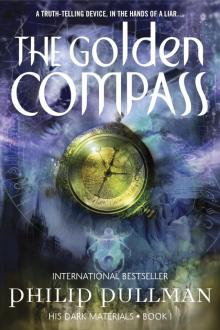 The Golden Compass
The Golden Compass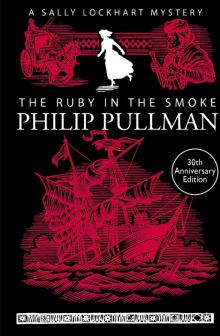 The Ruby in the Smoke
The Ruby in the Smoke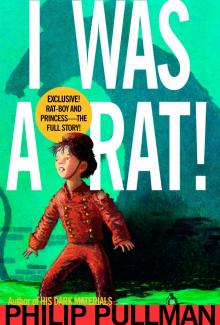 I Was a Rat!
I Was a Rat!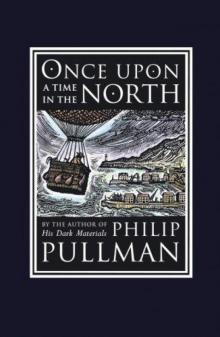 Once Upon a Time in the North
Once Upon a Time in the North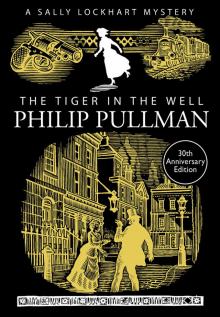 The Tiger in the Well
The Tiger in the Well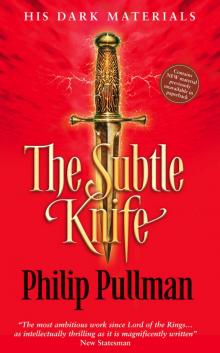 The Subtle Knife
The Subtle Knife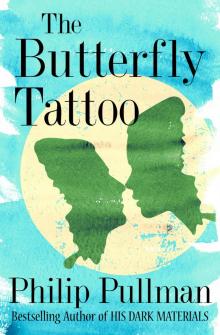 The Butterfly Tattoo
The Butterfly Tattoo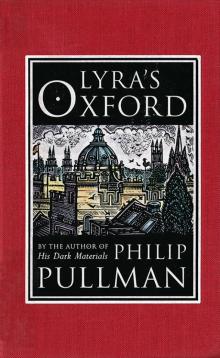 Lyra's Oxford
Lyra's Oxford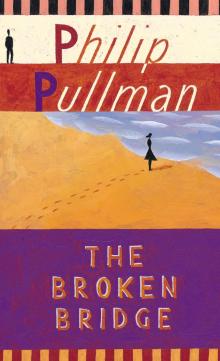 The Broken Bridge
The Broken Bridge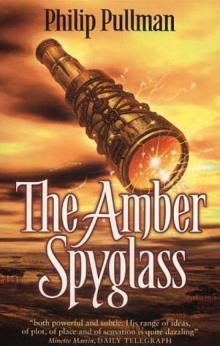 The Amber Spyglass
The Amber Spyglass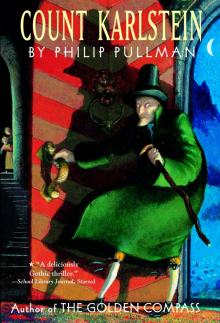 Count Karlstein
Count Karlstein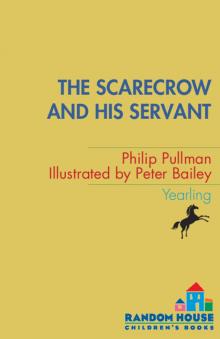 The Scarecrow and His Servant
The Scarecrow and His Servant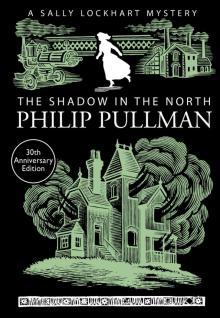 The Shadow in the North
The Shadow in the North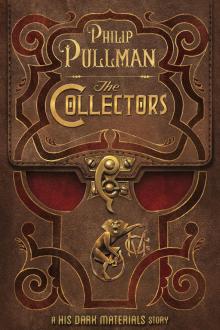 The Collectors
The Collectors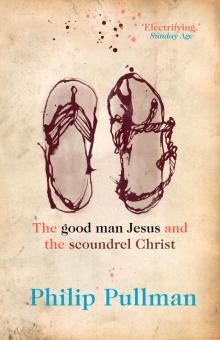 The Good Man Jesus and the Scoundrel Christ
The Good Man Jesus and the Scoundrel Christ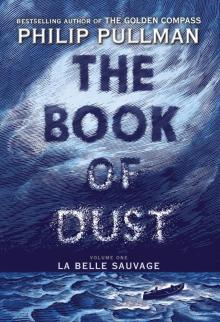 La Belle Sauvage
La Belle Sauvage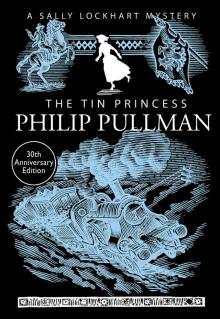 The Tin Princess
The Tin Princess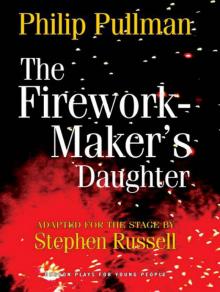 The Firework-Maker's Daughter
The Firework-Maker's Daughter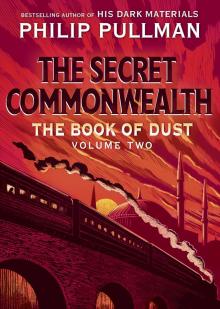 The Book of Dust: The Secret Commonwealth (Book of Dust, Volume 2)
The Book of Dust: The Secret Commonwealth (Book of Dust, Volume 2)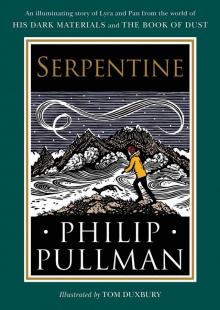 Serpentine
Serpentine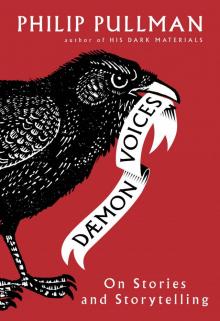 Daemon Voices
Daemon Voices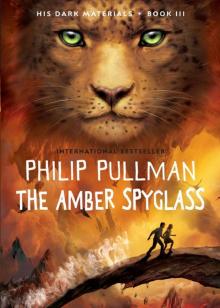 The Amber Spyglass: His Dark Materials
The Amber Spyglass: His Dark Materials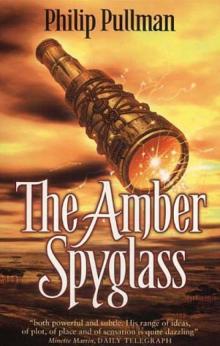 The Amber Spyglass hdm-3
The Amber Spyglass hdm-3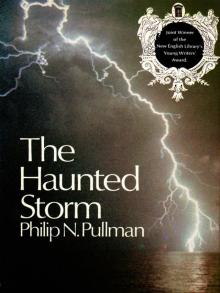 The Haunted Storm
The Haunted Storm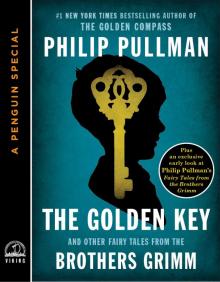 The Golden Key
The Golden Key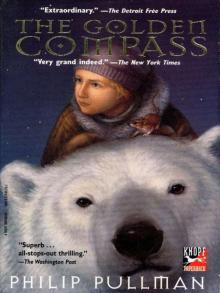 His Dark Materials 01 - The Golden Compass
His Dark Materials 01 - The Golden Compass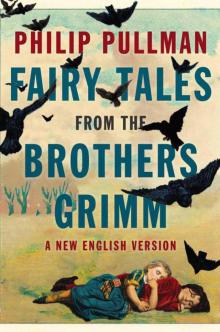 Fairy Tales from the Brothers Grimm: A New English Version
Fairy Tales from the Brothers Grimm: A New English Version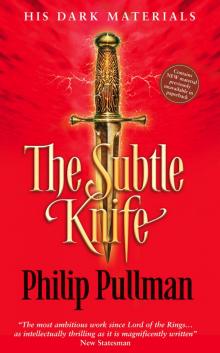 His Dark Materials 02 - The Subtle Knife
His Dark Materials 02 - The Subtle Knife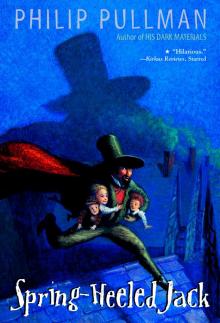 Spring-Heeled Jack
Spring-Heeled Jack The Golden Compass hdm-1
The Golden Compass hdm-1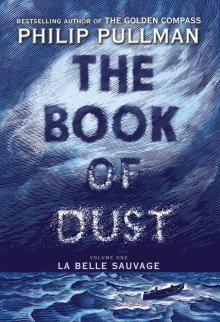 The Book of Dust, Volume 1
The Book of Dust, Volume 1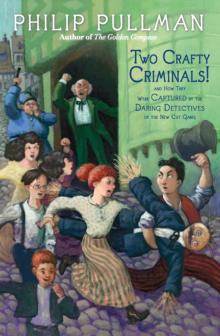 Two Crafty Criminals!
Two Crafty Criminals!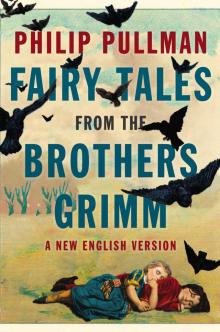 Fairy Tales from the Brothers Grimm
Fairy Tales from the Brothers Grimm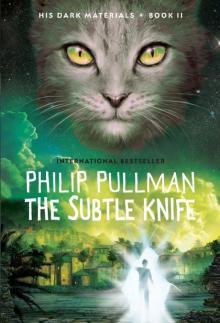 The Subtle Knife: His Dark Materials
The Subtle Knife: His Dark Materials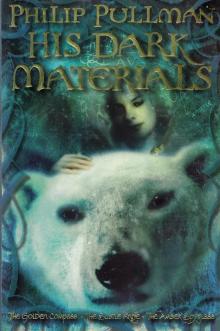 His Dark Materials Omnibus
His Dark Materials Omnibus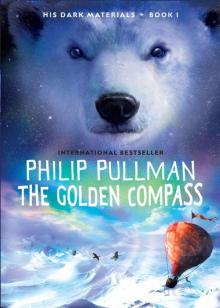 The Golden Compass: His Dark Materials
The Golden Compass: His Dark Materials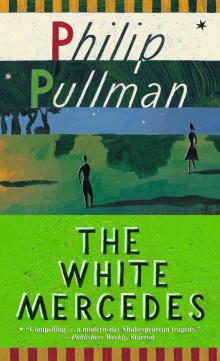 The White Mercedes
The White Mercedes